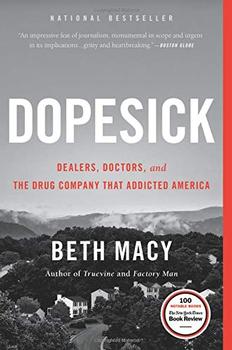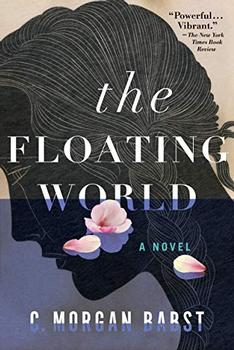Summary | Excerpt | Reviews | Beyond the book | Read-Alikes | Genres & Themes | Author Bio

Life and Death in a Storm-Ravaged Hospital
by Sheri FinkWinner of the BookBrowse 2013 Best Non-Fiction Award
There are nonfiction authors who spend years researching a subject and want all their research to be known, and so they dump it all in. Consequently, you, the reader, feel the weight of that, both on your head and on your time. Then there are nonfiction authors who have spent years researching a subject but have the rare gift of melding their findings so smoothly into the prose that you learn everything you possibly can without it feeling like your most despised chore.
Pulitzer Prize-winning reporter Sheri Fink sets up permanent residence in the latter camp, taking six years of research and investigation into the events that took place at Memorial Medical Center in New Orleans during Hurricane Katrina, and sculpting it into Five Days at Memorial, a narrative that keeps her Pulitzer Prize shining brightly and should put her in line to win another one.
Many stories illustrate her extraordinary skill and talent. An example: the LifeCare long-term care unit of the hospital, as seen through the eyes and emotions of Angela McManus. Angela's mother, Wilda McManus, was a patient there, and Angela tirelessly monitored her treatment. She made sure, among other things, that her mother would not receive the drug Ativan because she had previously had a bad reaction to it, yet a nurse injected it into Wilda's I.V. line, without Angela's knowledge. Angela was the one "asking for a doctor to rescind her mother's Do Not Resuscitate (DNR) order," because otherwise Wilda wasn't a priority in the evacuation. Police forced all non-staff to leave the hospital and Angela had to leave Wilda behind. Her mother never made it out alive.
This is one of many incidents Fink is able to shed light on with the benefit of diligent research. Wilda and Angela are two people, but nearly 2,000 doctors, nurses, patients, family members, and visitors were trapped for five days in an unimaginable hell. Sewers backed up, looting began, and rescue helicopters and boats were few. The hierarchy dissolved, medical equipment and emotions broke down, and heartbreaking questions emerged about how to treat patients when the electricity went out, and standard procedures could not be performed. Another story that throws and twists the reader's emotions like a hurricane: Alert, jovial, paraplegic 380-pound Emmett Everett was euthanized as proper evacuations got underway. Everett, who didn't even have a DNR order, was given midazolam and morphine together, leading to his death. The alleged reason? Because the doctor taking care of him didn't believe he could be evacuated from the hospital. Fink presents a horrifying dilemma that spins moral compasses wildly. How can anyone with a soul make these kinds of decisions and execute them? How can Anna Pou, a head and neck surgeon whom Fink researched extensively, actually consider and, shockingly, go through with such a thing? Pou is the public face of these euthanizations, although there are others. Her alleged actions, the investigation of which makes up the second half of the story, create a stunning portrait.
Fink is a remarkable author. She comes from a school of thought that says, "Report the facts and let the readers make up their own minds. Don't lead, don't tease, don't cajole. Just let the story unfold." No matter how vivid Fink's narrative becomes, culled from more than 500 interviews, various books, reports, photographs, Internet postings, articles, videotapes, notes and so much more, her words remain calmly stated. She is truly an objective observer. And so, Five Days at Memorial also becomes a master class in journalism. Fink was not at Memorial Hospital when Hurricane Katrina hit, but she confidently writes as though she was. Can you imagine the trust that Fink had to establish with those she interviewed, the rapport she had to quickly form, the questions she must have asked hundreds of times, and the hundreds of answers she had to piece together? Six years certainly shows devotion to her subject, but it's what she's done with all that material that matters the most. She has done this story proper justice, hopefully fostering more discussion about the way out in such harrowing situations, and what changes should be made to our current systems.
Even as the story becomes more complex and frustrating in parts (not because of Fink's writing, but because of what the subsequent investigation that makes up the second half of the book reveals and doesn't reveal, as well as the attempts by Tenet, the corporation that owns the hospital, and others to seal potentially incriminating information), Fink is considerate of her readers. She re-introduces major players in the story and then moves on to the latest development. She does the same with medical terminology and explanations of procedures.
Don't plan to do anything after you've finished reading Five Days at Memorial. Or actually, do. Hug your family. Eat a favorite food. Play a favorite song. It'll take a while to recover emotionally. And even after you do, you'll always remember what happened at Memorial, and wonder if this is what we're becoming, and if it's not too late to change course.
![]() This review was originally published in The BookBrowse Review in September 2013, and has been updated for the
February 2016 edition.
Click here to go to this issue.
This review was originally published in The BookBrowse Review in September 2013, and has been updated for the
February 2016 edition.
Click here to go to this issue.

If you liked Five Days at Memorial, try these:

by Beth Macy
Published 2019
The only book to fully chart the devastating opioid crisis in America: An unforgettable portrait of the families and first responders on the front lines, from a New York Times bestselling author and journalist who has lived through it.

by C. Morgan Babst
Published 2018
A dazzling debut about family, home, and grief.
These are not books, lumps of lifeless paper, but minds alive on the shelves
Click Here to find out who said this, as well as discovering other famous literary quotes!
Your guide toexceptional books
BookBrowse seeks out and recommends the best in contemporary fiction and nonfiction—books that not only engage and entertain but also deepen our understanding of ourselves and the world around us.